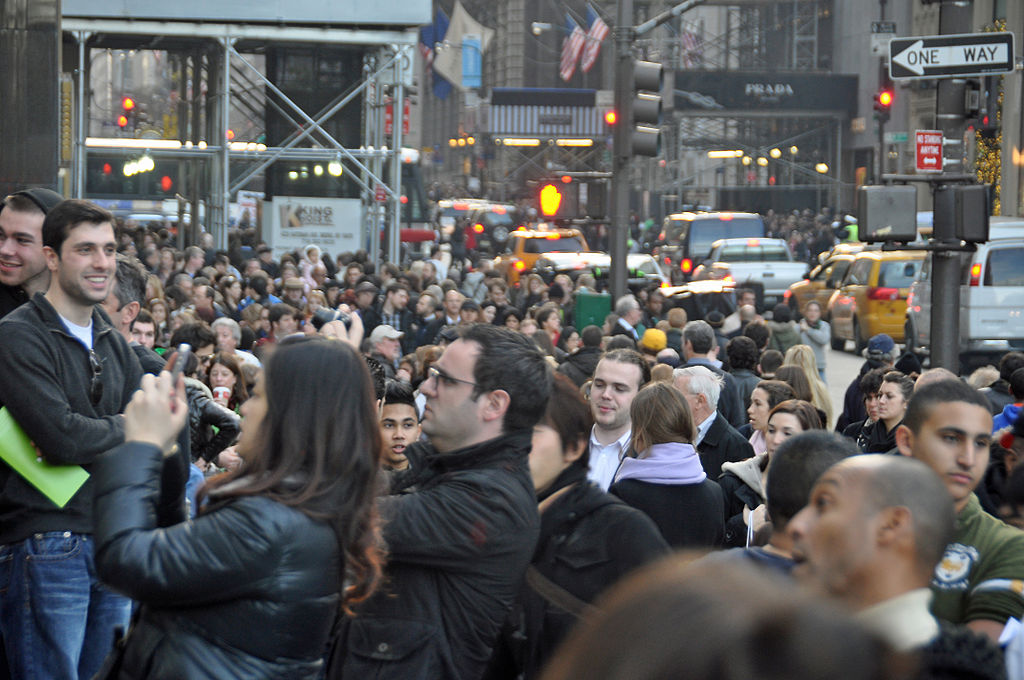This year, only 21% of consumers in the UK planned major purchases. This figure was 25% a year ago,. Even among those who are going to attend the sale, 74% intend to spend less money than in 2015. Most shoppers were found in age groups 18-24 years and 35-44 years (men aged 45-54 years were the most active buyers last year).
"People did not simply become bored from the idea. We see the problem of mismatch of expectations of buyers and sellers", - said Richard Lim, CEO of Retail Economics. 40% of retailers are expecting growth of sales, yet only 14% of buyers agree with them. The study involved more than 2,000 people and 20 companies (which cover about 45% of turnover of the country’s market of consumer goods).
Such a significant difference in expectations could lead to losses for companies, which often hire extra personnel for sales days (their salary has to be paid even if there is no influx of customers), and also stock up with additional products (often with a limited shelf life).
Retail Economics’ study can add another source of major concern to to companies that are now trying to re-assess not the "Black Friday", but also other major sales days, such as Cyber Monday, and Christmas. In the UK, consumers this year are faced with a weakening pound and rising inflation.
However, PricewaterhouseCoopers analysts believe that people in such circumstances just become more willing to spend money (to invest in something tangible). They are predicting a rise in household spending in the coming weekend by 38% to 2.9 billion pounds ($ 3.6 billion).
"Black Friday" has become an integral part of British consumer culture in the 2000s, when people lined up in front of shops, and websites of companies could not cope with flow of online customers. Chances are that novelty of excessive demand has passed, so the British now are taking sales coolly. Polls also suggest that they don’t like standing in line either.
Only 20% of consumers are planning online shopping this year, which in general is not surprising. Black Friday begins a sell-off in the offline stores. 20% of respondents (among those who are going to take advantage of the "Black Friday") stated that they would like to purchase household appliances and electronics, as they are afraid that later price of these products can be significantly increased. Clothes and shoes are popular too, and furniture and household goods cause the least enthusiasm in the British.
Earlier, a similar problem arose in the United States. According to polls, "Black Friday" this year will not be the biggest trading day, losing the lead to pre-Christmas sale on 23 December.
source: bloomberg.com
"People did not simply become bored from the idea. We see the problem of mismatch of expectations of buyers and sellers", - said Richard Lim, CEO of Retail Economics. 40% of retailers are expecting growth of sales, yet only 14% of buyers agree with them. The study involved more than 2,000 people and 20 companies (which cover about 45% of turnover of the country’s market of consumer goods).
Such a significant difference in expectations could lead to losses for companies, which often hire extra personnel for sales days (their salary has to be paid even if there is no influx of customers), and also stock up with additional products (often with a limited shelf life).
Retail Economics’ study can add another source of major concern to to companies that are now trying to re-assess not the "Black Friday", but also other major sales days, such as Cyber Monday, and Christmas. In the UK, consumers this year are faced with a weakening pound and rising inflation.
However, PricewaterhouseCoopers analysts believe that people in such circumstances just become more willing to spend money (to invest in something tangible). They are predicting a rise in household spending in the coming weekend by 38% to 2.9 billion pounds ($ 3.6 billion).
"Black Friday" has become an integral part of British consumer culture in the 2000s, when people lined up in front of shops, and websites of companies could not cope with flow of online customers. Chances are that novelty of excessive demand has passed, so the British now are taking sales coolly. Polls also suggest that they don’t like standing in line either.
Only 20% of consumers are planning online shopping this year, which in general is not surprising. Black Friday begins a sell-off in the offline stores. 20% of respondents (among those who are going to take advantage of the "Black Friday") stated that they would like to purchase household appliances and electronics, as they are afraid that later price of these products can be significantly increased. Clothes and shoes are popular too, and furniture and household goods cause the least enthusiasm in the British.
Earlier, a similar problem arose in the United States. According to polls, "Black Friday" this year will not be the biggest trading day, losing the lead to pre-Christmas sale on 23 December.
source: bloomberg.com





